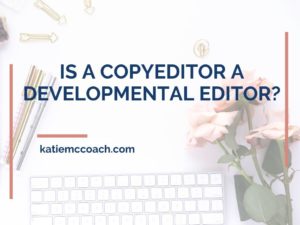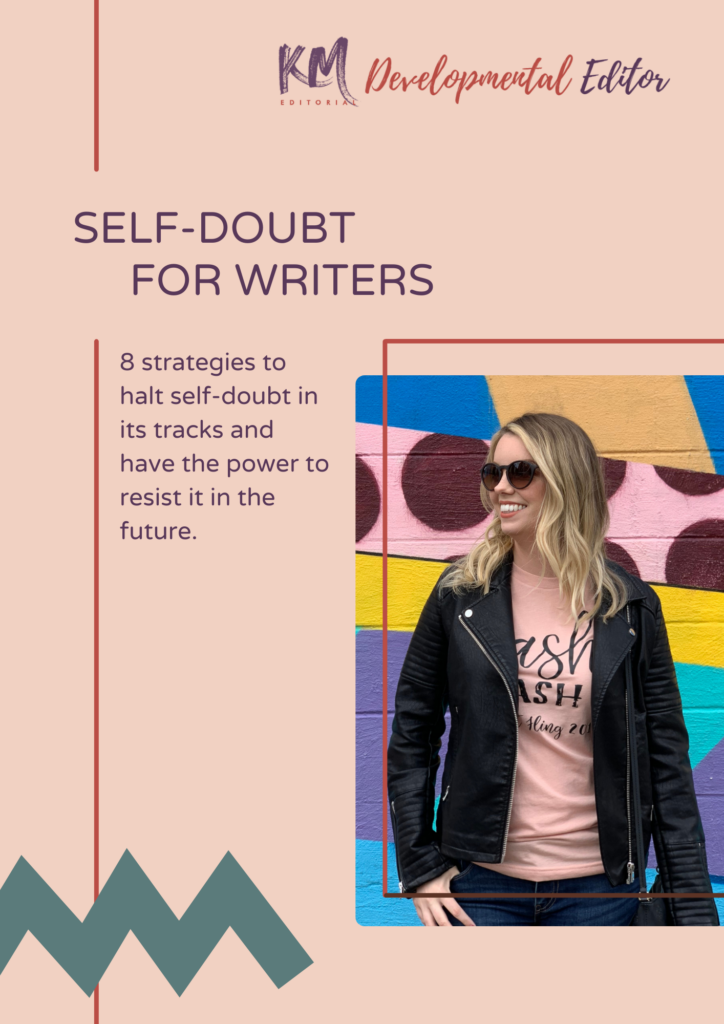
I recently received a question from a writer that made me realize now would be a good time to introduce or re-introduce myself—more specifically, what I do—to my subscribers:
What’s the difference between a developmental editor and other editors? It’s only been recently that I’ve heard the term developmental editor.
Whether you are new to writing, or you’ve been doing it for years, the first time you come across the term developmental editor (if you ever even do!) may sound a bit odd. Why is the word developmental in front of a job you already know about? Is this a fancy way of saying copyeditor?
No, it’s not a fancy way of saying copyeditor. It’s a completely different job altogether. Although there is slight overlap between developmental editing and copyediting (depending on the editor), the jobs themselves are very different. The edits received back from these two jobs will vary completely. And each editor is utilizing a different skill set, an entirely different part of their brain, to do each job.
Developmental editing is for “manuscripts [that] need in-depth, comprehensive, substantive editing.” The editorial process of the developmental edit may vary from editor to editor, however the idea is the same – work with an author to help them create their best possible story.
This usually involves things like critiques or manuscript evaluations, substantive edits, developmental editing, and line editing. The goal of these edits is to work with the author to strengthen their story telling and writing abilities. This is the first stage of editing.
These edits look at the writing style, voice, pacing and flow, characters, readability, intended audience, genre, narrative, plots and subplots, etc. This is also where things such as backstory, show vs. tell, POV, dialogue and more are addressed. Sometimes a developmental editor will provide light copyediting to address glaring errors.
You may often find that a developmental editor is another way of saying writing coach. Essentially, that’s what dev. editors do, they help you develop your skills as a writer and storyteller. After you receive your edits back, you will almost always be required to dive into extensive revisions. But you’ll have the tools now to be able to make productive revisions. Developmental editing exists to get your story to the best content-level possible.
Then what is copyediting?
Copyediting is the final stage of editing before a manuscript goes to typesetting. There is no rewriting or substantive changes in a copy edit. A copy editor provides one of three level of edits: light, medium, or heavy. During these edits, a copy editor looks at things such as grammar and word usage, spelling, capitalization, punctuation, numbers, clarity, missing words, basic fact checking, tense usage, querying anything questionable, and more.This is where there may be slight overlap in the edits. A copyeditor may offer line editing as well, and their edits may be more copy focused than content, but copyeditors understand Show Don’t Tell and strong writing skills as well, so some editors will include comments on this in their service.
When you send your book to a copyeditor, it is with the knowledge that you’ve done every level of edit on it before as necessary and that this is your final copy. It doesn’t mean it’s the final copy to immediately be published! But it means that as the writer, you are done making revisions beyond accepting and addressing edits from the copyeditor. All content work is done (unless of course the copyeditor tells you otherwise).
Often, writers will reach out to copyeditors and list out the expectations they have, and those requests actually fall under the scope of developmental editing. This also happens when writers ask for proofreading when they really are in need of copyediting. It may sound overwhelming the first time you hear this, but, keep in mind all these steps are there to ensure you are putting forward the best book you possibly can.
Something to always remember: a good editor doesn’t try to change your writing voice. A good editor helps you enhance it.
Still have questions? Check out these comprehensive blog posts, or reply to this email and ask me directly!
https://katiemccoach.com/hiring-an-editor-the-different-kinds-of-editing-explained/
https://katiemccoach.com/what-is-developmental-editing-does-your-story-need-it/
https://katiemccoach.com/4-things-you-can-expect-when-working-with-a-developmental-editor/
Connect with me on:
Join the FREE Writing with Coach McCoach writing support community HERE.


 Download your free copy of these 8 tried-and-true strategies to stop self-doubt and imposter syndrome as a writer. And, build the power to resist it in the future.
Download your free copy of these 8 tried-and-true strategies to stop self-doubt and imposter syndrome as a writer. And, build the power to resist it in the future.